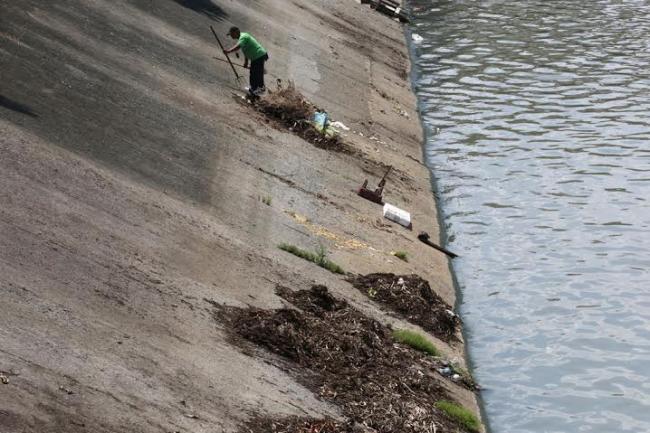A new initiative to build climate resilience in the world’s most vulnerable countries waslaunched by Secretary-General Ban Ki-moon and 13 agencies of the UN system.
“Three out of four humanitarian disasters are now climate-related,” Ban told delegates attending a High-level meeting on climate resilience at the Paris-Le Bourget site, COP21’s main venue.
“Economic losses have increased by more than half over the past decade. Ecosystems, and food and water supplies are under increasing pressure. The hardest hit are the poor and vulnerable – including small farmers, fishing communities and indigenous peoples,” warned the UN chief.
According to the UN, the new initiative – called ‘Anticipate, Absorb, Reshape’ – will strengthen the ability of countries to anticipate hazards, absorb shocks, and reshape development to reduce climate risks.
It is expected to help address the needs of the nearly 634 million people, or a tenth of the global population who live in at-risk coastal areas just a few meters above existing sea levels, as well as those living in areas at risk of droughts and floods.
The world is now experiencing a strong El Niño event, which could place as many as 4.7 million people at risk from drought in the Pacific alone.
Over the next five years, the Initiative is set to mobilize financing and knowledge; create and operationalize partnerships at scale, help coordinate activities to help reach tangible results, catalyze research, and develop new tools.
The Secretary-General also joined the launch of the International Solar Alliance, set up by the Governments of India and France. In the presence of India’s Prime Minister Narendra Modi, the UN chiefsaid the Alliance will “enable solar-rich developing countries to make the best use of an abundant, free natural resource.”
“The broad support for this international coalition is testament to the resonance of your vision of a solar-powered path to prosperity,” said Ban.
He added, “As the Prime Minister has said, we need ‘development without destruction.’ Solar energy offers major potential for reducing poverty and limiting greenhouse gas emissions.”
He added that he counts on developed countries to partner with the International Solar Alliance by providing technology support, capacity-building and financial resources.
Other news at the opening of COP21 included a pledge by 11 donor countries of close to $250 million dollars in new money for adaptation support to the Least Developed Countries Fund (LDCF), a climate fund hosted by the Global Environment Facility (GEF).
“I have seen for myself how people from across the developing world are leading the way to climate solutions,” said Mary Robinson, the UN Secretary-General’s Special Envoy on Climate Change.
“But the scale and international nature of climate change requires an unprecedented level of international solidarity and support. So today’s announcement should be seen in that context: they are not just about dollars and cents and accounting. They are about supporting millions of people across the world,” she added.
Meanwhile, a new Fossil Fuel Subsidy Reform Communiqué was presented to Christiana Figueres, the Executive Secretary of the UN Framework Convention on Climate Change (UNFCCC), by the New Zealand Prime Minister John Key.
The Communiqué calls on the international community to increase efforts to phase out perverse subsidies to fossil fuels by promoting policy transparency, ambitious reform and targeted support for the poorest.
In addition, the World Bank announced it has been working with four European countries – Germany, Norway, Sweden, and Switzerland – to set up a new $500 million initiative that will find new ways to create incentives aimed at large scale cuts in greenhouse gas emissions in developing countries to combat climate change.
The initiative, called the Transformative Carbon Asset Facility, will reportedly help developing countries implement their plans to cut emissions by working with them to create new classes of carbon assets associated with reduced greenhouse gas emission reductions, including those achieved through policy actions.
Twenty countries, all of them major economies, launched Mission Innovation, a landmark commitment to dramatically accelerate public and private global clean energy innovation, including doubling their current investments in the sector.
According to UNFCCC, these national commitments “are coupled with a major, independent private sector initiative spearheaded by Microsoft co-founder Bill Gates in which entrepreneurs, investors, and businesses will deploy billions more dollars to drive innovation from the laboratory to the marketplace.”
Finally, the opening of COP21 also included new partnerships forged between world leaders from major forest countries who today endorsed forests as a key climate solution.
A press release issued by UNFCCC indicated that they recommitted to providing strong, collective and urgent action to promote equitable rural economic development while slowing, halting and reversing deforestation and massively increasing forest restoration.
Additional initiatives and pledges are expected during the two-week conference, which is scheduled to end on 11 December.
Photo: World Bank/Dominic Chavez
